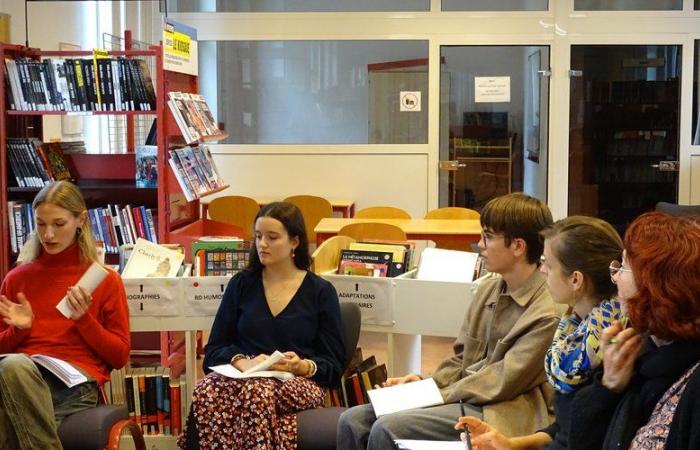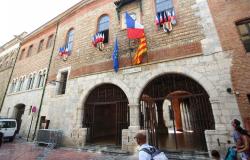
the essential
Ahead of the Michel-Serres Meetings, high school students from Palissy studied Sophie Galabru’s book, “Making a family”.
At the CDI of the Bernard-Palissy high school, in Agen, we wondered about the notion of inheritance addressed by Sophie Galabru in her book “Making a family, a philosophy of links”.
Supervised by their teachers, eight students dissected a few chapters of the work on Wednesday. A way for them to practice debate, the confrontation of ideas and the push for reflection, in calm and respect for others.
Thus, the family as presented by Sophie Galabru aroused various reactions among high school students. “When I am reminded of my last name, I have the impression of disappearing behind it,” comments one of the young philosophers. “Our name, our social class, all that, makes us wonder if we can exist independently of our family. This is the question we asked ourselves before reading Sophie Galabru’s book. »
Sophie Galabru and blood ties
Peace, the central theme of the Michel-Serres 2024 Meetings, is featured in the eloquence of Sophie Galabru under the title “Peace in the family”. The young woman, granddaughter of actor Michel Galabru, has made blood ties one of her favorite themes. Through “Making a family, a philosophy of connections”, she explores the multiple faces of family relationships. Under his pen, family ties multiply. Distribution of tasks, hierarchical relationships, transmission, departures and arrivals… Peace within the family is a fluctuating thing and depends on many factors. The family itself is a concept full of paradoxes. We feel good or bad there, we want at all costs to belong to it, or on the contrary to escape from it… So many facets that the doctor of philosophy, high school and university teacher, will address during her conference Saturday afternoon at the town hall.
“Even if we are opposed to our family, to what they instilled in us, it is still her who built us,” retorts a teenager. Not for nothing do we often hear the phrase “I know you as if I made you”…
Material and emotional heritage
From there, young people address the question of inheritance, and everything it encompasses. By studying the philosopher’s work, high school students learned to distinguish between material and emotional inheritance. “We also discovered that the goods transmitted can have an emotional charge,” continues a student. “We inherit intrinsic things. Parents want to pass on concepts to their children, or try to live through them, pushing them to do what they themselves were unable to do in their youth. »
“It’s a bit categorical for my taste,” intervenes Manon, in her final year. “We also have parents who push us to follow our own path. For me, it’s more about protection. It’s a way to encourage you to be yourself. The child is free to refuse to be an extension of his parents. »



